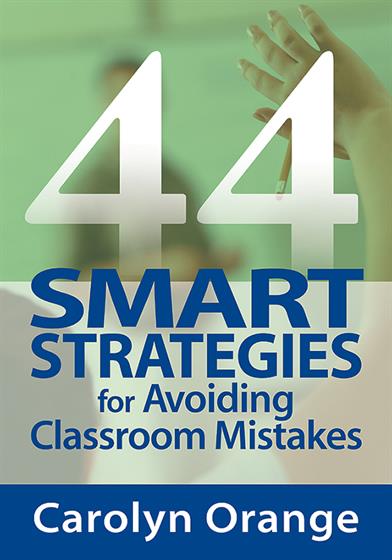Hands-on, Practical Guidance for Educators
From math,
literacy, science, equity, multilingual learners, and SEL, to assessment, school counseling,
and education leadership, our books are research-based and authored by experts
on topics most relevant to what educators are facing today.

44 Smart Strategies for Avoiding Classroom Mistakes
By:
Carolyn Orange
Avoid classroom problems with this exciting new resource!
Based on the observations of more than 200 instructors, this dynamic, hands-on text presents finely honed strategies for creating flexible lesson plans, maintaining enjoyable classrooms that run like well-oiled machines, managing paperwork effectively, and much more to help teachers create an environment that is conducive to better teaching and learning. Includes:
Based on the observations of more than 200 instructors, this dynamic, hands-on text presents finely honed strategies for creating flexible lesson plans, maintaining enjoyable classrooms that run like well-oiled machines, managing paperwork effectively, and much more to help teachers create an environment that is conducive to better teaching and learning. Includes:
- Practical methods to plan for foreseen and unforeseen classroom circumstances
- Tips to inspire and motivate your students
- Useful techniques for maximizing students' strengths and minimizing their weaknesses
- Advice on how to project a professional image
- Steps for developing exciting, energetic instruction
Product Details
- Grade Level: PreK-12
- ISBN: 9780761938750
- Published By: Corwin
- Year: 2004
- Page Count: 240
- Publication date: December 17, 2004
Review Copies
This book is not available as a review copy.

